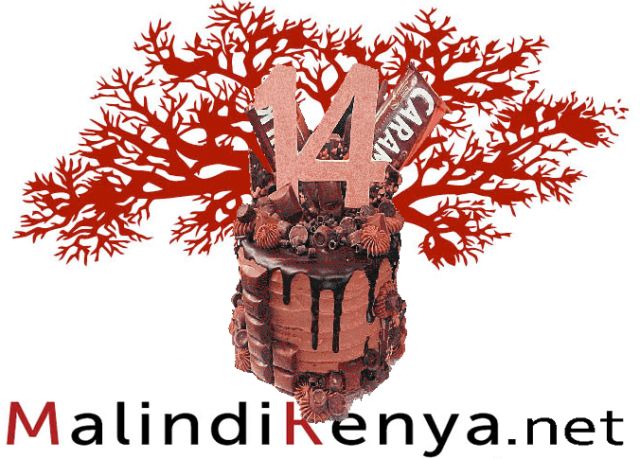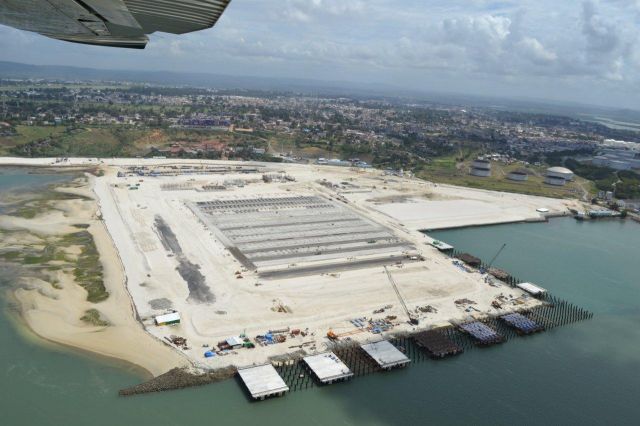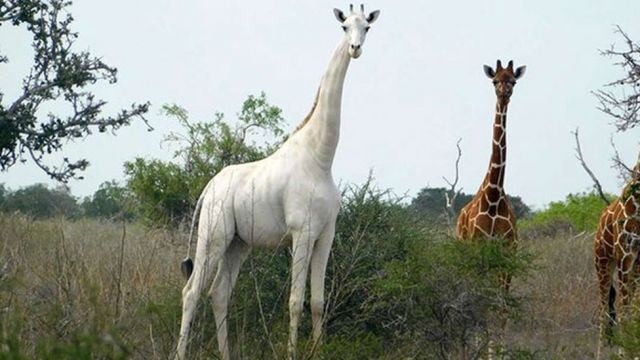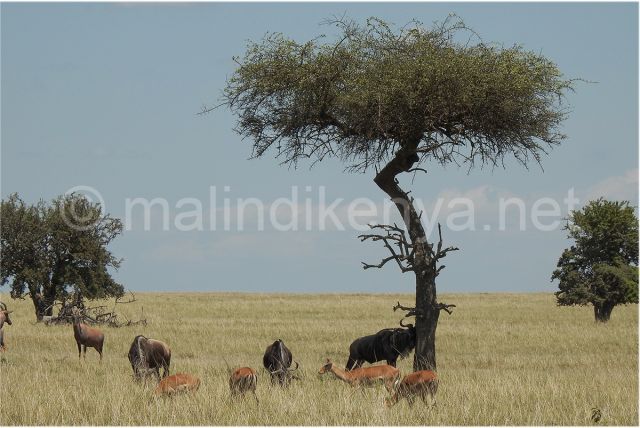
09-04-2015 by Freddie del Curatolo
The great South African writer J.M.Coetzee in his celebrated novel 'Waiting for the Barbarians' (in Italy published by Einaudi, I recommend it) gives voice to a magistrate who has always lived in a border area where nothing has ever happened.
Suddenly, from the distant capital, worrying news arrives, the 'barbarians' are on the warpath and could arrive at any moment. So military and political experts are also sent there to sound out the situation.
Everyone thinks in their own way, between those who conduct useless and harmful witch hunts, those who identify invisible enemies and so on.
No one obviously trusts the opinion of those who, like the magistrate, live there and see the situation more clearly and objectively.
The difference between us Italians in Malindi and Coetzee's magistrate is that in his day, there were no online newspapers, there was no Facebook, although television, as always, directed the viewer where its interests dictated.
For the past two days I have been receiving calls from print journalists, online blogs and television stations, but few will publish what I say. Nobody believes what I tell them.
And mind you, I am not claiming that here, as in Tunis or Paris, there is no possibility of attacks or sudden violence. Nowhere is safe anymore.
Never could the whole of Kenya be, struck to the core, albeit on the border, in a no-man's land where even the government struggles (and perhaps does not even try hard) to guarantee security. But if you knew how many things are not guaranteed in this country. Every day women and men die of pain, for lack of medicines that can alleviate it, mothers die of childbirth, girls die of infections due to infibulation, entire groups of citizens die of road accidents due to the poor control of vehicles on the roads. On the border with Ethiopia Kenyans kill each other over a quadrilateral of arable land, in Lake Victoria over a few fishy islets.
Kenya is three and a half times the size of Italy, and much of the country is still Third World. Do you know this? Or are you only informed about Al Shabaab and Isis because that is what they feed us in prime time now?
I simply say to everyone that we here are not afraid and indeed, in some way, we are joined in our tranquillity by a lot of Islamists.
They are our suppliers of fish, fruit, vegetables, the drivers who drive the minibuses, the tuk-tuks, the taxis that take us to the airport, the jeeps that go on safari.
They are the managers of our hotels, the cooks of our restaurants, the companions of our non-alcoholic snacks by the sea or in the kiosks of the old town.
They are the seamstresses who make our shirts, the shopkeepers who lower the price of bags and sandals, the best accountants, the most reliable bank clerks. How many Ali, Ahmed, Hassan and Mohamed do we know? How many Fatma, Adija or Farida do we know, in a more biblical than Qur'anic sense?
In spite of this, for all that, we SHOULD be afraid, in fact we would already have our luggage in hand and a return ticket, because here (according to others) the tension is cut with a knife, because it is normal that if 360 kilometres of inhospitable road from here, on the border with Somalia in an area where a westerner would not go unless paid a lot, there has been a very serious attack, we too here should get it in our pants.
We are sorry for the sake of the news to click, for the families at home who are pleased to remain in Casalpusterlengo or Velletri, for our fine political analysts, and for the economy at home, which certainly benefits from putting an African country that has no bilateral agreements with Rome in a bad light.
We would very much like to tell you that here we do not sleep at night, that we are not taking part these days in a Multicultural Festival where integration is so natural that you do not even think about who is standing next to you, as is now the case in Europe, when a gentleman with an Osama Bin Laden-style beard appears.
Instead, here we meet Kenyans of Arab origin who are the first to report a citizen of Somali origin to the local police, should they see one (very difficult indeed), we see priests and imams praying together for peace in a stadium, with the participation of Hindus and animists from the local tribes, and the aspect that concerns us most of all is the national political situation, and the uncertainty over the timing of the extension of the runway at the international airport.
And mind you, I say "worries us" and I don't mean the businessmen and Briers, restaurateurs and all those with the "golds".
I mean 250 000 Kenyans working in the tourism sector, I mean all the Kazungu or Kadenge who work for us or the Hassan and Mohamed.
Thinking of them at this moment comes naturally to me, because I live with them, many of them I saw being born, growing up, learning a trade, coming out of the mud huts and making a small concrete house. I wasn't 7000 km away waiting to mourn their misery the next day and then saying 'now it's time for silence'.
I have always raised my voice for them, and all the more so now. The Kenyans are the real victims of all this, but not because they lost 150 young students living in a high-risk area.
They are victims of something every day, and on top of that they have to put up with the useless populism or superficiality of those who believe it is only a matter of Allah versus Christ here.
Someone even compared the Kenyan situation to that of Nigeria, with Boko Haram.
Today, the words of an alleged 'spokesman' are enough to frighten the whole world.
But this way, take it from me, one no longer lives, and the paradox appears even greater in a place like the Kenyan coast, where even those who possess nothing are ready to smile, where hope is cultivated along with spinach to be eaten with polenta, waiting for beans once a week, in the slums where the sun of any good God does not give its rays and where the greatest dangers are called infections, snakes or scorpions.
Where people struggle every day to be able to go to school with a decent pair of shoes and an extra book, and where the tourism industry has so far offered a real chance to those 250,000 people.
Here, on the Kenyan coast where nothing so serious has ever happened as to suggest to a single one of us to go back to Italy or escape elsewhere. Maybe you are right, the sun has blinded us, we are reckless, we have become a bit fatalistic like the people here.
Tomorrow morning maybe the 'barbarians' will arrive here too and leave their mark, like in New York, Cairo, Tripoli, Paris and Tunis. They will arrive and after a few months they will be forgotten. We in the meantime, were it not for the pleasure you deny us of the company of so many other compatriots, would be very, very well and we challenge those who have been to Malindi and Watamu in recent years to say otherwise with good reason.
In the meantime, to everyone else, we only ask that you make the small effort to believe our words.
NEWS
by redazione

The Kenyan government is threatening to shut down Facebook if within a week it does not comply with requests...
EDITORIAL
by Freddie del Curatolo

Fourteen years are not a few.
They are the distance between a human being's first wailing on his...
NEWS
by redazione

Vaginal rinses with coca-cola and lemon, so Kenyan teenagers believe they can have...
WEATHER AND RISKS
by redazione

The bad weather emergency in Kenya now also threatens to bring flooding to the coastal strip, swelling...
NEWS
by redazione

Two or three days without Facebook, Twitter and other social media in Kenya.
This is the solution that the Government, through the Communications Authority, may take from August to the day of the results, presumably on the 10th, to prevent...
NEWS
by redazione

Nairobi will be connected within three years to a highway that will also handle the traffic of trucks coming...
NEWS
by redazione

Another two years to see the tarmac road from Malindi to the doors of Tsavo National Park.
It will not be ready for 2018 as expected at first, the road that for now has 12 km of asphalt on the 110...
NEWS
by redazione

Kenya's President Uhuru Kenyatta on Thursday 20 May officially opened the new port of Lamu for...
WILDLIFE
by redazione

The only known albino giraffe in Kenya will be monitored day and night by the conservationists of the...
EDITORIAL
by Freddie del Curatolo

Kenya is recovering sharply in the rankings of international tourists' liking, after the years of suffering from...